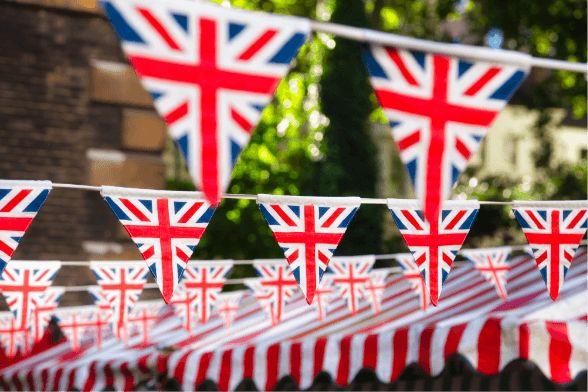
Kursy dla dzieci w wieku 5–6 lat
Dzieci w tym wieku są jak gąbki; bardzo szybko przyswajają informacje! Nasze kursy przedszkolne są zaprojektowane tak, aby były zabawne, wykorzystując mieszankę ćwiczeń w celu zmaksymalizowania zaangażowania i są prowadzone w ekspresyjny sposób.
Tworzymy podstawy języka angielskiego, koncentrując się na świadomości fonemicznej (nauka dźwięków) i rozpoznawaniu liter, jednocześnie pokazując uczniom nowe słownictwo i sytuacje komunikacyjne. Dowiedz się więcej o harmonogramie kursów Meridian, programie nauczania i kalendarzu akademickim poniżej.
Harmonogram
Nowi uczniowie w wieku 5-6 lat mogą rozpocząć swoje lekcje w poniedziałek lub wtorek, pod warunkiem że zakończysz rejestrację do 9. 0 (UK) na wybranej dacie rozpoczęcia. Daty te obejmują dni wolne od pracy i zamykanie szkół.
Podczas rezerwacji znajdziesz daty kursu dla dzieci w wieku 5-6 lat. Poniżej przedstawiono przykładowy harmonogram. Dostosowania czasu wynikają z brytyjskiego GMT do przejścia na BST. Powiadomimy Cię, jeśli wpłynie to na klasę Twojego dziecka.
2 razy w tygodniu

3 razy w tygodniu

What your child will learn at each levels?
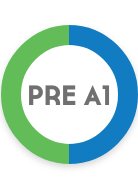
• Potrafi rozpoznać liczby, ceny, dni tygodnia, jeśli są wypowiadane wyraźnie i powoli.
• Potrafi rozpoznać znajome słowa, którym towarzyszą obrazki, takie jak książka z obrazkami, używając znanego słownictwa.
• Potrafi tworzyć krótkie zdania na swój temat, podając podstawowe dane osobowe.

• Potrafi rozumieć i używać znanych codziennych wyrażeń i bardzo podstawowych zwrotów.
• Potrafi przedstawić siebie i innych oraz zadawać i odpowiadać na pytania dotyczące danych osobowych, takich jak miejsce zamieszkania, osoby, które zna i rzeczy, które posiada.
• Potrafi komunikować się w prosty sposób, pod warunkiem, że druga osoba mówi wolno i wyraźnie oraz jest przygotowana do pomocy.
Kurs podstawowy dla dzieci w wieku 5–6 lat
 Rozdziały 1–4
Rozdziały 1–4
|
Course Title
ITE
duration
12 weeks
18–30 h |
Podstawowe tematy | Podstawowe słownictwo | Podstawowa gramatyka | Podstawowa wymowa |
|
• Hello |
• Classroom objects and |
• Say hello, introduce |
• Letters and phonics A-Z |
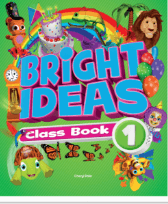 Rozdziały 1–4
Rozdziały 1–4
|
Course Title
Pre-A1.1
duration
12 weeks
18–30 h |
Podstawowe tematy | Podstawowe słownictwo | Podstawowa gramatyka | Podstawowa wymowa |
|
• What do we like about school? |
• Classroom objects and |
• ‘It’s a…’ and ‘have got/ |
• Consonant sounds /r/ |
 Rozdziały 5–8
Rozdziały 5–8
|
Course Title
Pre-A1.2duration
12 weeks18–30 h |
Podstawowe tematy | Podstawowe słownictwo | Podstawowa gramatyka | Podstawowa wymowa |
|
• What do we eat? |
• Food |
• ‘What do you…?’ and |
• Consonant sounds /tʃ/ |
 Rozdziały 1–4
Rozdziały 1–4
|
Course Title
Pre-A1.3
duration
12 weeks
18–30 h |
Podstawowe tematy | Podstawowe słownictwo | Podstawowa gramatyka | Podstawowa wymowa |
|
• Why do we like |
• Possessions and
|
• Possessive adjectives |
• Consonant sounds /w/ |
 Rozdziały 5–8
Rozdziały 5–8
|
Course Title
Pre-A1.4
duration
12 weeks
18–30 h |
Podstawowe tematy | Podstawowe słownictwo | Podstawowa gramatyka | Podstawowa wymowa |
|
• Why are animals |
• Wild animals and things |
• Present simple |
• Pronounce the /h/ sound |
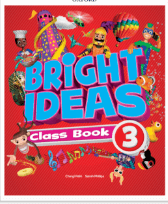 Rozdziały 1–4
Rozdziały 1–4
|
Course Title
A1.1
duration
12 weeks
18– 30 h |
Podstawowe tematy | Podstawowe słownictwo | Podstawowa gramatyka | Podstawowa wymowa |
|
• How do we make friends? |
• Activities and prepositions of movement |
• Present continuous and imperatives |
• The sound /ei/ |
 Rozdziały 5–8
Rozdziały 5–8
|
Course Title
A1.2
duration
12 weeks
18–30 h |
Podstawowe tematy | Podstawowe słownictwo | Podstawowa gramatyka | Podstawowa wymowa |
|
• How do we make friends? |
• Beach activities and |
• Questions with ‘Want to’ |
• Vowel sounds /ɔː/ (walks) |
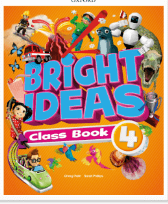 Rozdziały 1–4
Rozdziały 1–4
|
Course Title
A1.3
duration
12 weeks
18–30 h |
Podstawowe tematy | Podstawowe słownictwo | Podstawowa gramatyka | Podstawowa wymowa |
|
• What’s exciting about |
• Camping activities and |
• Past simple irregular |
• Vowel sounds /ɜː/ (third) |
 Rozdziały 5–8
Rozdziały 5–8
|
Course Title
A1.4
duration
12 weeks
18–30 h |
Podstawowe tematy | Podstawowe słownictwo | Podstawowa gramatyka | Podstawowa wymowa |
|
• What’s great about a zoo? |
• Zoo animals and Zoo keeper jobs |
• ‘going to + affirmative, |
• The /aʊ/ sound |






